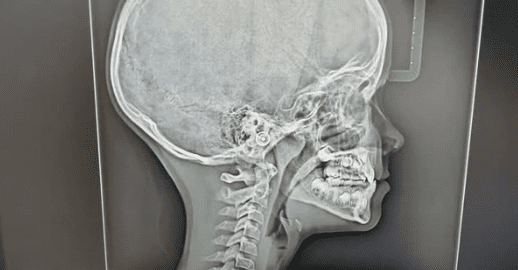Orthodontic emergencies are generally very rare, but Dr. Karpac will be there for you when you’re in trouble!

There truly are many different types of orthodontic emergencies, but the good news is that these types of scenarios are not common. However, it’s important for patients and parents to know that when emergency situations do arise, Dr. Karpac and the JK Orthodontics team will be there to help you.
Below we’ll be going over five common types of orthodontic emergencies that you should be aware of in order to better prevent them, and so you’ll be more informed about what is happening when serious situations arise!
Common Types of Orthodontic Emergencies
The following are some of the most common types of orthodontic emergencies:
1. Broken Brackets, Bands or Wires
It’s possible for a braces patient to experience some pain due to misusing their orthodontic appliances. A common example of this would be if the patient consistently plays with their braces or eats ill-advised foods like bubble gum or candy. The result of these types of eating habits can loosen bands, wires and brackets and potentially lead to a break. This type of malfunctioning can lead to painful poking inside the patient’s mouth that can create irritation or other types of oral injury.
If you’re experiencing any level of irritation associated with a broken bracket, band or wire, then the first thing you should do is apply orthodontic wax to alleviate the abrasion. The wax will help alleviate pain until you’re able to visit one of our offices.
Dr. Karpac will need to thoroughly examine your entire mouth to be absolutely sure that we’ve permanently solved your problem, and these scenarios always require an immediate call so we can fit you in as soon as possible.
2. Wire, Tie or Bracket Moves From Its Intended Positioning
Your teeth will always slightly adjust with your braces as you talk or eat food, but of course unfortunate scenarios can occur when an archwire or other component becomes diverted from its proper positioning. This can lead to a patient feeling a poking feeling in their cheeks, or in other more serious scenarios, a lot more discomfort!
Although it’s possible to use tweezers to slightly adjust your wires or ties, it’s important to give us a call right away so you can rush to one of our offices and have Dr. Karpac conduct the appropriate adjustments before you experience further damage.
3. Severe Tooth Pain or Tooth Loosening
It’s natural to be a bit frightened when your teeth feel like their loosening up; however, it’s important for orthodontic patients to understand that a slight tooth loosening is a normal part of the treatment process. Your teeth need to be slightly loosened in order to move from their improper position into their new, correct positioning.
Although pain relievers and anti-inflammatory medication can help reduce these types of pains, it’s important to recognize when your tooth pain is beyond the normal scope of what your treatment is supposed to impose. Many orthodontic emergencies associated with tooth pain or loosening are associated with an impact against the patient’s teeth, which typically occur in sports and motor vehicle accidents.
In these troubling situations, it’s important to see Dr. Karpac as soon as you’re able to so you can maintain the timeline of your treatment and re-strengthen the teeth that are giving you trouble.
4. Broken Retainers
Although retainers are a part of your post-care routine, they’re still incredibly important for the overall integrity of your treatment’s results. Retainers can break in many different ways, and this is mainly because they’re pretty fragile. Whether your retainer breaks, bends or simply moves its position within your mouth, you’re going to need to visit Dr. Karpac and get a new one as soon as possible.
Although it’s possible to repair a broken retainer, it’s likely that you’re going to need a replacement.
5. Swallowing a Part of Your Retainer
Although this is a much rarer scenario than simply breaking your retainer, it’s possible for someone to swallow tiny pieces of a broken retainer when they’re sleeping or when they’re not paying attention. It’s important that you don’t panic in this scenario, because tiny pieces of your retainer will more than likely pass through your digestive system without any bodily harm.
However, if you’re experiencing a situation in which you’re having difficulty breathing or are choking on the retainer piece, then you’re going to need to go to the emergency room immediately!
Contact The JK Orthodontics Team When You Or Your Child Is Experiencing An Orthodontic Emergency!
Every type of orthodontic treatment is comfortable and very safe, but there of course are rare scenarios in which the unimaginable occurs. We make sure that all our patients and parents are prepped and ready just in case these unfortunate orthodontic emergencies occur, and you can always reach out to us and meet us at one of our offices no matter what time of day it is.
Contact us online or call us at 614-766-0330 (Dublin office) or 614-471-6355 (Gahanna office) to speak with our team today and learn more about what you can do when an orthodontic emergency occurs!

